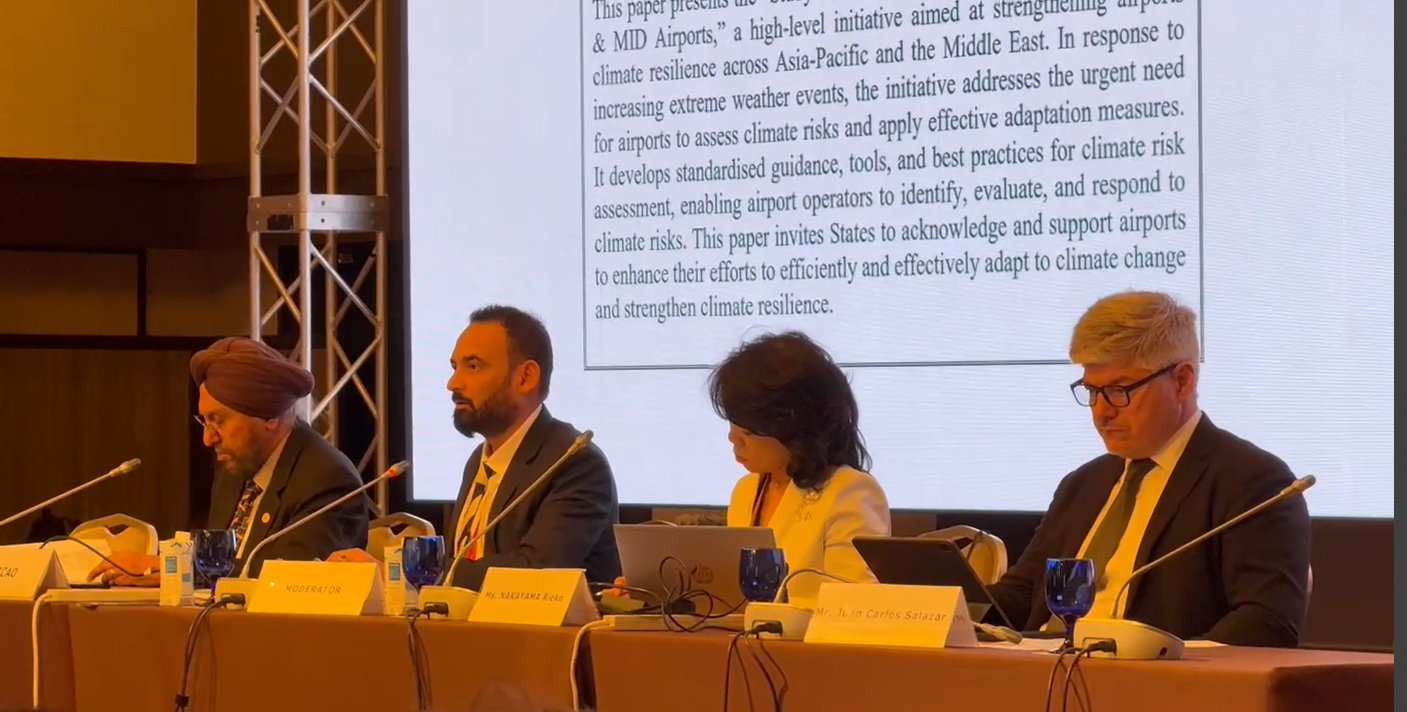Kathmandu: Pradeep Adhikari, Director General of the Civil Aviation Authority of Nepal (CAAN), has stressed the urgent need for regional cooperation to address the intertwined challenges of climate change and aviation.
Speaking during a session on “Aviation and Environment” at the 60th Director General-level Conference of the International Civil Aviation Organization (ICAO) Asia-Pacific region held in Japan, Adhikari called for immediate and united action.
Highlighting the growing impacts of climate change in Nepal—from glacial melting to disruptions in aviation operations—Adhikari urged Asia-Pacific countries to jointly initiate concrete climate responses. He emphasized that nations like Nepal, which contribute almost nothing to global carbon emissions, are already bearing the heavy costs of the climate crisis.
“Aviation is an economic engine, yes, but it also contributes to climate change,” Adhikari said in his opening remarks. “Nepal’s emissions, including those from aviation, are negligible. Yet we are among the most affected nations—our glaciers are melting, glacial lake outburst floods are increasing, erratic weather is rising, and our aviation sector is facing serious operational challenges.”
He underlined that aviation and the environment are inextricably linked and called for objective, equitable, and inclusive solutions to the crisis. Noting that eight of the world’s ten tallest mountains, including Mount Everest, are in Nepal, he pointed out that exposed rock is increasingly visible where snow once dominated—visible signs of a rapidly warming climate.
“Climate change does not recognize borders, nor should responsibility be measured by emissions alone,” he added, calling for greater solidarity and climate justice in global aviation policy.
Speakers at the session discussed ICAO’s five-year strategic plan, pathways to net-zero carbon emissions, sustainable aviation fuels, low-carbon fuel alternatives, and other clean energy innovations. Representatives from countries including India and Indonesia emphasized the need to enhance regional capabilities.
India, in particular, highlighted the importance of adopting environment-friendly policies beyond fuel and infrastructure, such as banning single-use plastics in aviation services.
Nepal, for its part, showcased its efforts to power all of its airports with renewable hydropower and presented them as “green airports.” Nepal also encouraged other nations to prioritize just transitions and innovations that are equitable and sustainable.
“Our aviation activities may be small, but the impacts we suffer are not,” Adhikari stated during his closing remarks. “Equity, innovation, and shared commitment are the only way forward.”
He concluded the session with a call for continuous partnership and collaboration to ensure sustainable and resilient development in the aviation sector.



Comment Here